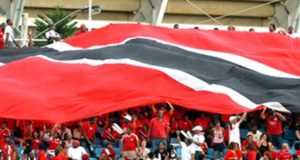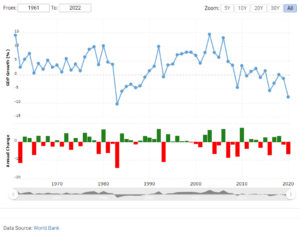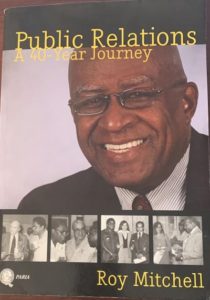|
Getting your Trinity Audio player ready...
|
Reading Time 4 mins
August 31, 2021
It was perhaps fortuitous that the Prime Minister chose the occasion of the sod-turning ceremony for a construction project for the building of a Panyard for the Desperados Steel Orchestra to remark on the issue of diversification.
Projecting that this space had the potential to become a steelpan entertainment centre to provide tourists with the experience of the steelpan culture of Trinidad and Tobago, the diversification question seemed fitting.
This occasion coming just days before the celebration of the 59th anniversary of Independence must have made the topic even more compelling for the leader of the Government.
The Diversification Dilemma
Independence in 1962 marked the transition from Crown Colony status to the people now taking over the responsibility for the country’s future and its nation-building project.
The colonial tragedy was that the colonial possessions of the imperial power served to provide the raw materials for the industrial transformation of the metropolitan countries of the empire-builders.
Chattel enslaved, captured, and brought across the Middle Passage provided unpaid labour for the mainly agricultural cash crop economies in the islands of the Caribbean, the valuable feedstock for the burgeoning factory production in England, France, and other headquarters of the empires.
Each colony was organised under the plantation system, the sole purpose of which was to specialise in the production of primary commodities for export as inputs for the manufacturing establishments of the increasingly wealthy capitalists in the metropole.
Each territory was restricted to a single or minimal number of ‘cash crops’ decided as most efficient for production by the plantations using super-exploited slave labour.
This was the era of the monocrop economy of each colony for the maximum economic benefit of the colonial power. The transition of labour sources from slavery to indentureship beyond Emancipation and the Haitian Revolution made no real change to the plantation economy and its purpose.
As Lloyd Best put it, “The legacy of institutions, structures and behaviour patterns of the plantation system are so deeply entrenched that adjustment tends to take place as an adaptation within the bounds of the established framework.”
Despite all the expectations created with declarations of ‘Massa Day Done‘ by Eric Williams, the notions of economic transformation and industrialisation by invitation touted by Sir Arthur Lewis and others, the fundamentals of the monocrop plantation economy are the fundamentals that persisted beyond Independence.
The New Monocrop System
This strategy that was supposed to create “new industries (as) an essential part of a programme for agricultural development” and “as a complement to it,” as Lewis argued, failed to produce a diversified economic base.
The multinational corporations failed to create the anticipated employment levels even though the Government enticed them with tax holidays and pioneer industry concession.
These incentives and concessions left the state without sufficient resources to sustain economic development. As a result, the oil industry, which had significant expansion due to the British military modernization and growth in both World Wars, became the main factor in the country’s GDP and exports (up to 80% of foreign exchange earnings by 1960-61). Sugar and cocoa exports dominated the agriculture sector, and by 1960 the Tate & Lyle monopoly was complete in the sugar industry.
Tobago was consigned to be the tourist isle as designated by the colonial power since the 1930s. Tourism 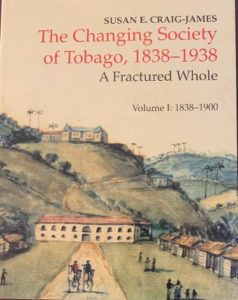 development was also based on offering tax concessions and incentives. The Hotel Development Corporation was set up for hotel development in Tobago in 1957.
development was also based on offering tax concessions and incentives. The Hotel Development Corporation was set up for hotel development in Tobago in 1957.
As a diversification strategy, the invitation exercise did not achieve a balanced economic development level. Between 1956 and 1973, there were three five-year development plans. The second and third spoke of the need to ‘change the economic structure’ and to ‘diversify the economy by strengthening sectors other than petroleum.’
On Independence Day 1974, Dr. Williams spoke of ‘new industries based on petroleum’ and ‘diversification of products we formerly exported.’
The emergence of the gas sector and gas-based plants at Point Lisas heralded a change in the hydrocarbon monocrop but did not diversify the economy. The heavy reliance on oil and gas did not prevent the repeated boom and bust cycles as the economic fortunes were dictated by the price fluctuations in the world hydrocarbon economy.
Balanced Development Needed
Looking over the vista of the 59 years of Independence, the roller coaster ride of GDP growth and the state of the economy is stark. Despite the repetitive chanting of the diversification mantra over the Independence years, neither sustained economic growth nor balanced economic development arose.
It was most unfortunate that the Prime Minister used his diversification discourse to berate “Trinidadians” for halting efforts at diversification in the last two decades while calling on people to stop talking about diversification and start acting on it.
Back in the early years of Independence, Pegasus, the organisation created in 1962, presented this view on the issue of the economy:
“We believe that our economic organisation should allow for the maximum utilisation of our human and material resources and should be capable of promoting the general welfare of the citizens and at the same time maintain the dignity of man.”
Just as we cannot stand on one foot, the economy that should be the solid base on which our nation-building project and Independence must be erected cannot stand on one foot.
Without a balanced economic development, with contributions from all sectors to promote the general welfare of all citizens, Independence, and the nation-building project will be in jeopardy and remain within the bounds of the established framework of the plantation economy.
_ _ _ _ _ _ _ _ _ _ _ _
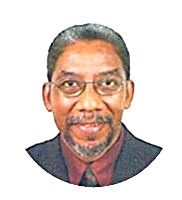 Clyde Weatherhead, a Citizen, calling for the Reinfusion of the Spirit of Independence, was part of the youth of the 1970 Revolution. Coming out of that most volatile period of the history of Trinidad and Tobago has fostered his deep interest in matters of history and political and social development. Clyde has written and published several books; his most recent publications are, Robber Man: The Cultural Contributions of Brian Honoré and Pegasus and the Making of Project Independence. Clyde is a practicing Attorney at Law and served as Secretary/Treasurer and President of the Public Services Association of Trinidad and Tobago during the 1990s. Check out his blog here and his Amazon Author page.
Clyde Weatherhead, a Citizen, calling for the Reinfusion of the Spirit of Independence, was part of the youth of the 1970 Revolution. Coming out of that most volatile period of the history of Trinidad and Tobago has fostered his deep interest in matters of history and political and social development. Clyde has written and published several books; his most recent publications are, Robber Man: The Cultural Contributions of Brian Honoré and Pegasus and the Making of Project Independence. Clyde is a practicing Attorney at Law and served as Secretary/Treasurer and President of the Public Services Association of Trinidad and Tobago during the 1990s. Check out his blog here and his Amazon Author page.

